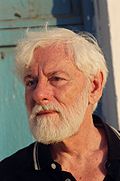IT SOUNDS like the title of a romantic movie. "Daphne, Itzik and all the Others."
It starts off with a friendship between two youngsters, he in his early thirties, she in her mid-twenties. Then they quarrel. He leaves. She remains.
The audience knows exactly what it wants: it wants the two to reunite, kiss, marry and walk arm-in-arm into the sunrise, to the accompaniment of a soft melody.
As for the actors, they are perfect. They both play themselves. Hollywood's Central Casting couldn't have done better.
She is an attractive young woman, wearing a man's hat for easy recognition. He is the Israeli young male, vaguely handsome, easily recognizable by his nose.
THE STORY starts with Daphne Leef, an editor of short films, daughter of a composer, unable to rent an apartment in Tel Aviv. She is fed up. She announces on Facebook that she is going to live in a tent on Rothschild Boulevard and asks if anyone will join her.
Some do. Then more. Then even more. In no time, there are more than a hundred tents on the avenue, one of the oldest in town, a quiet residential neighborhood. Other tent cities spring up all around the country. A mass movement has come into being. Last Saturday, 350,000 people demonstrated in Tel Aviv -- 450,000 throughout the country. That would be something like 18 million in the US, or 3 million in Germany.
Some time after the whole thing started, the Israeli National Student Union, led by its chairman, Itzik Shmuli, joined the protest. Daphne and Itzik were seen as the leaders, together with some others, notably Stav Shaffir, also easily recognizable with her flaming red hair. (Stav means autumn.)
The media loved them. They embraced them with a fervor never seen before. In a way that was quite remarkable, since all the media are owned by the very same "tycoons" against whom the protesters are railing. The explanation may be that the average working journalist belongs to the same social group as Daphne and the other protesters -- young middle-class men and women who work hard and still do not make enough to "finish the month."
Also, the media needed the "rating": the public wanted to see and hear the protests. No one could afford to ignore it, not even a tycoon eager for profit.
THREE WEEKS ago, the first signs of a split started to appear. After first treating the protest with disdain, Binyamin Netanyahu saw the danger and did what he (and politicians like him) always do: he appointed a commission to propose "reforms." He neither promised to implement its recommendations, nor did he allow the commission to break the bounds of the two-year state budget already enacted by the Knesset.
For some, this was just a maneuver to gain time and let the protest movement lose its momentum. Others pointed to the fact that the commission is headed by an independent, 61-year-old professor in good standing, Manuel Trajtenberg (a German name written in the Spanish way) who could be expected to do his best within the limits dictated to him. Netanyahu himself, something between a pious Reaganite and a devout Thatcherite, promised to change his economic views altogether.
That's how the split started. Daphne, Stav and most of the others refused to cooperate with the commission. Itzik embraced it and met with its members. Daphne was not satisfied with the limited reform likely to emanate from the commission, Itzik was ready to accept what was achievable.
Actually, the controversy was not inevitable. Daphne and her colleagues could do what Zionists have always done with immense success: at every stage, take what you can get and move on to get more.
But the split is much more than a disagreement over tactics. It reflects a basic difference of world view, strategy and style.
DAPHNE IS anti-establishment. She is not doing this for slight changes within the existing system. Though she was born into the heart of the establishment, Jerusalem's sedate Rehavia neighborhood, she wants to overthrow it and to create something completely new.
(Note: You can view every article as one long page if you sign up as an Advocate Member, or higher).





